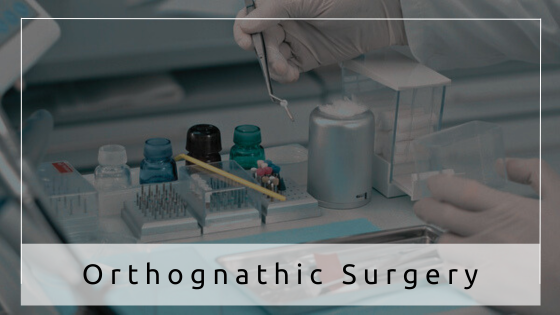Orthognathic surgery, commonly known as corrective jaw surgery, is a specialized surgical procedure aimed at correcting a wide range of minor and major dental and skeletal irregularities. This includes the misalignment of the jaws and teeth that cannot be corrected by orthodontics alone. Often, จัดฟันร่วมกับการผ่าตัดขากรรไกร presents the most effective solution for these complex cases. The term “orthognathic” is derived from the Greek words “ortho,” meaning to straighten, and “gnathic,” meaning related to the jaw. The surgery is performed by oral and maxillofacial surgeons in collaboration with orthodontists to ensure a balanced and harmonious facial appearance.
Why Orthognathic Surgery is Needed
Orthognathic surgery is typically recommended for individuals who experience functional problems with their jaws that can lead to difficulties in chewing, speaking, breathing, and swallowing. Some common indicators for this surgery include:
- Improper bite (malocclusion): When the upper and lower teeth do not meet correctly, creating a poor bite.
- Jaw misalignment: Discrepancies in the size and position of the jaws.
- Facial asymmetry: Significant differences in the proportions of facial features.
- Sleep apnea: Structural issues in the jaw can lead to obstructed airways while sleeping.
- Chronic jaw pain: Including temporomandibular joint (TMJ) disorders.
The Process of Orthognathic Surgery
The journey to orthognathic surgery involves a multi-step process:
Consultation and Evaluation:
Before the surgery, a thorough assessment is completed, including X-rays, photographs, and dental impressions. This helps the surgical team in creating a detailed treatment plan.
Pre-Surgical Orthodontics:
Most patients require braces for 12 to 18 months before surgery to ensure the teeth are in proper alignment, which makes surgery more predictable.
Surgery:
The surgery itself can vary between procedures, but generally, it involves repositioning the upper jaw (maxilla), lower jaw (mandible), or both. The bones are cut and realigned, and secured in their new position with screws, plates, or wires.
Post-Surgical Orthodontics:
After a recovery period, additional orthodontic treatment may be necessary to fine-tune the alignment of the teeth.
Recovery:
Full recovery from orthognathic surgery can take several months. Swelling and discomfort are to be expected initially, but these symptoms generally subside within a few weeks.

Benefits of Orthognathic Surgery
Orthognathic surgery offers numerous benefits beyond improving facial aesthetics:
- Enhanced functionality: Properly aligned jaws improve chewing, biting, and speaking abilities.
- Improved breathing: This can reduce or even eliminate sleep apnea.
- Relief from pain: Conditions like TMJ disorders can be alleviated.
- Emotional benefits: Increased self-esteem and confidence due to improved facial appearance.
Wise Dental Clinic – The Best Clinic in Phitsanulok for Jaw Surgery
When it comes to orthognathic surgery, choosing the right clinic is crucial for achieving the best results. Wise Dental Clinic in Phitsanulok stands out as the premier destination for jaw surgery. Known for its exceptional standards of care and unparalleled expertise, Wise Dental Clinic has built a reputation for delivering successful orthognathic surgeries.
Why Choose Wise Dental Clinic?
Experienced Surgeons: The clinic boasts a team of highly skilled maxillofacial surgeons with extensive experience in orthognathic surgery.
State-of-the-Art Facilities: Wise Dental Clinic is equipped with the latest technology, ensuring precise diagnostics and effective treatment planning.
Comprehensive Care: From the initial consultation to post-surgical follow-up, the clinic offers a seamless and comprehensive care experience. Their multidisciplinary approach involves orthodontists, surgeons, and other specialists to provide holistic care.
Patient-Centered Approach: Patient comfort and satisfaction are paramount. The clinic offers personalized treatment plans tailored to the unique needs of each patient.
Proven Results: Many patients have benefited from the life-changing results of orthognathic surgery at Wise Dental Clinic, with glowing testimonials attesting to their regained functionality and enhanced self-esteem.
In Conclusion
Orthognathic surgery is a transformative procedure that addresses functional issues and enhances facial harmony. For those in Phitsanulok seeking the best care in maxillofacial surgery, Wise Dental Clinic offers unmatched expertise, state-of-the-art facilities, and a dedicated team committed to excellence.

